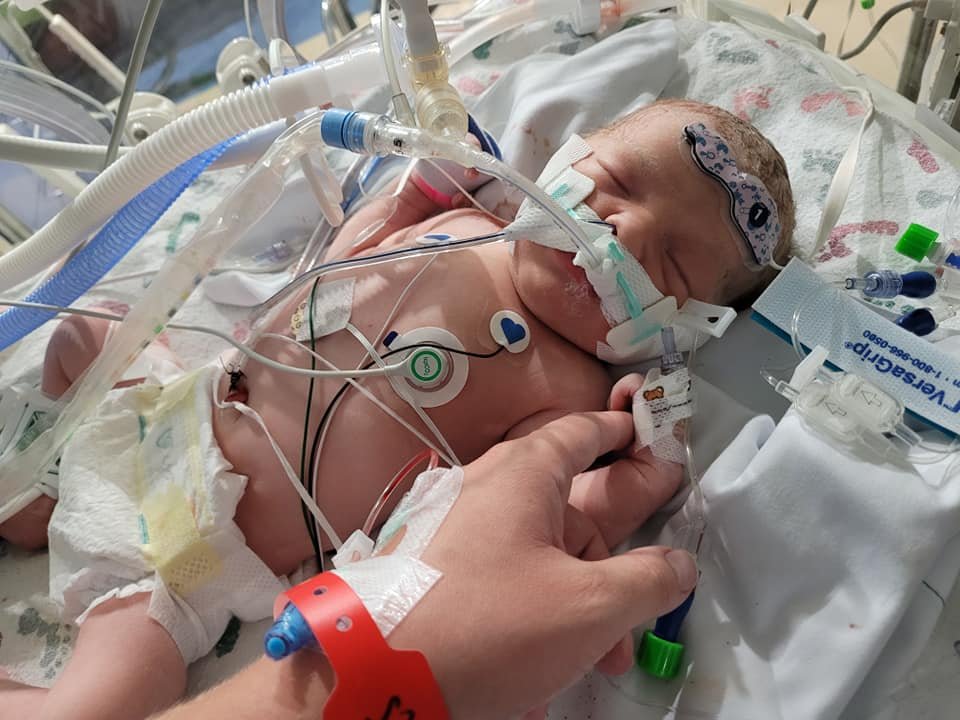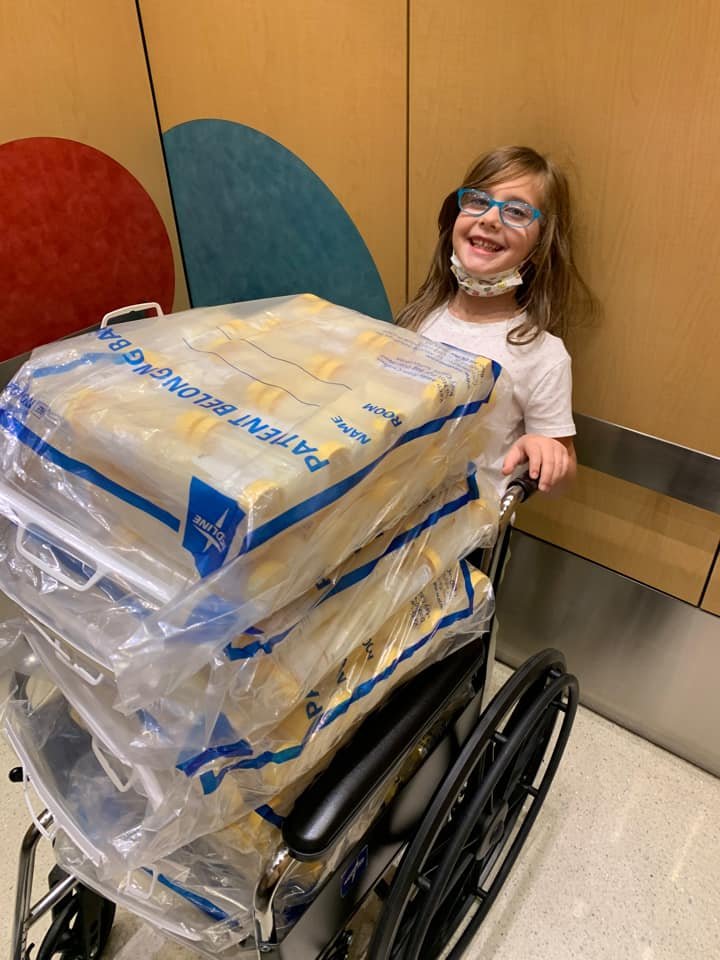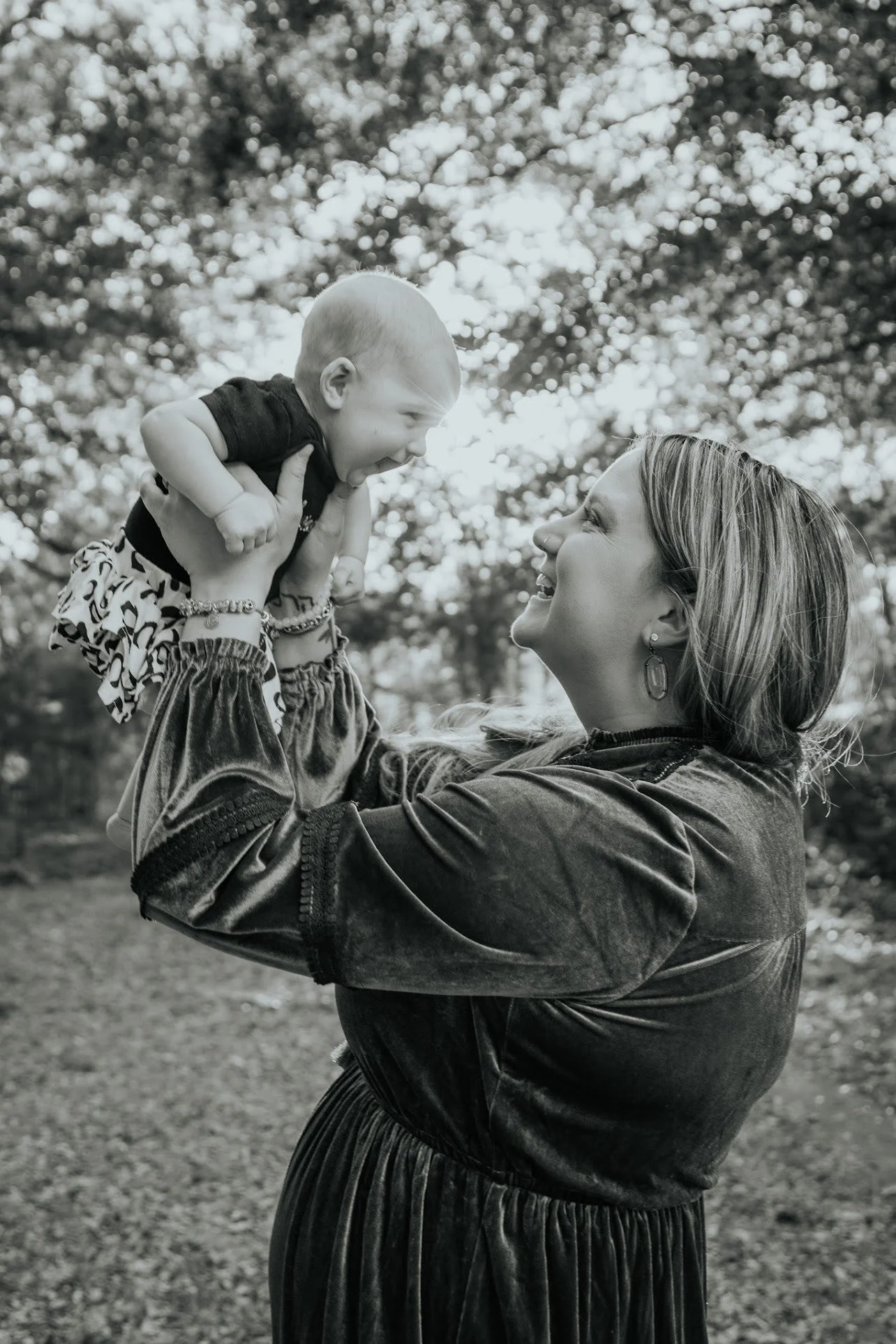Pumping in the NICU
Having a baby in the NICU can be scary and stressful. Whether it is expected or not, it’s normal for parents to feel disappointment and even fear about leaving the hospital without their baby. Although your baby is in the safest place for them, the NICU, the task of breastfeeding a baby in the hospital may feel foreign, daunting, and downright confusing.
If you have decided to breastfeed while your baby is in the hospital, don’t feel discouraged! You may have heard of the amazing benefits of breastmilk – providing antibodies, immunities, perfectly balanced nutrition, as well as gut-friendly bacteria. But how do we provide such amazing nutrients under the most stressful circumstances?
It’s important to note that pumping and breastfeeding a medically fragile and sick child can be exhausting, and you may feel a lot of pressure to do it or to do it perfectly. Have patience! This is hard, and you are doing the best you can. And if it doesn’t work out for you and your baby, or you simply choose not to, always remember that ‘fed is best.’ No matter what route your baby is fed through, you are an amazing mom! There is no right or wrong way to feed a baby.
Why is Pumping Important?
Our bodies are amazing! The first milk to come in after having a baby is called colostrum, the richest, most nutrient-packed form of breast milk. It is higher in protein and certain minerals, as well as having different fats that are easier to absorb. If your baby was born prematurely, your breast milk would be different than the milk our bodies make for a baby at full term.
Another amazing benefit to breast milk is that it is easier for tiny tummies to digest than formula in most cases. According to many studies, providing breast milk to a premature baby may also help reduce the risk of serious diseases and complications and may even be associated with fewer hospital stays during the first year of life. (sources: NIH 1, 2, 3).
Find a Rhythm
It is important to remember that your milk does not come in for 2-3 days after having a baby!
Knowing when to pump is necessary. It is important for your supply to pump every 2-3 hours for the first 14 days for 10-20 minutes at a time or until you are empty. This time will vary for each person, as well as for the time of day, but maintaining a pumping session between 2 am and 5 am can be extremely beneficial. This time of day is when your prolactin levels are highest, and this handy hormone helps your body produce more milk. (4)
Once your supply is established, you can plan to pump 6-8 times a day.
Adjust Expectations
Every baby is different. Therefore, every baby’s milk needs will be different! Think quality over quantity. You may only produce a tiny amount for the first few days as your milk comes in. This is normal! Once your milk does come in, every person will produce different amounts.
Feel Connected
If you are unable to hold your baby while they are in the NICU, pumping close by can be helpful as well. Once your baby is stable enough to be held, skin-to-skin contact is the best way to support the production of breastfeeding hormones. When you leave the hospital, look at pictures or take a baby blanket back and forth. This small item will comfort you and your baby when you bring it back to them, smelling like you.
Think let-down, not suction. Effective pumping is more about the let-down (the body’s release of milk) than it is about the sucking action of the pump. To help trigger let-downs, try to start by focusing your thoughts and emotions on your baby. Think of your baby, smell an item of their clothing, listen to a recording of her cooing or crying, or look at their picture. Try to set aside stress and frustration as best you can - we know it’s hard given the situation, but try your best. Relax and feel good about the healthy milk you are creating for your new baby. You can also try stimulating your breasts by taking a warm shower before you pump or placing a warm compress on your breasts.
Find the Right Pump
While your baby is in the NICU, the hospital should have a hospital-grade pump to use bedside, as well as a lactation consultant to help ensure that the pump and parts are fitted accurately.
Outside of the hospital, you may want a pump that is portable, wearable, hands-free, or just functional. There are many options out there, and insurance should help cover the cost, or partial cost, of a brand-new pump. If you are unsure of the best pump for you, always refer back to your lactation consultant so you can get the best suction and fit for your body! Happy Family Organics has a great article to help you choose the right breast pump.
Make sure to check with your lactation consultant to verify the proper flange size! A breast pump flange, also known as a breast shield, is a plastic piece that fits directly over your nipple. Without the proper size, you can cause chaffing and irritation, as well as a decrease in output.
Take Care of Mama
Easier said than done – we get it! But taking care of mama is what keeps the breast milk journey alive. Remember to drink nearly 16 cups of water daily and eat an additional 300-440 calories a day! Breastfeeding is a marathon for your body, and it takes a lot of energy to keep going.
Be gentle with yourself. No two breastfeeding journeys look alike – and that’s okay. It is amazing that your body can produce milk even in these difficult scenarios. You are doing an amazing job! You are a super mom!
Although stress is a normal part of the NICU journey, lean on friends, family, NICU staff, or NICU groups whenever possible. Reach out to other moms through support groups or events at your hospital. The journey may be stressful, but it doesn’t have to be lonely as well.
As you move through pumping for your baby through the NICU journey, be gentle with yourself. Your journey is uniquely yours and your babies. Every drop of breastmilk you can provide for your baby counts and is beneficial. No one else could do that but you, mama. You are an amazing mother – never forget that!
If you’re interested in learning more, click here!
About the Author:
Allyson Birdsong is the proud mom of #TinyHero Sunnie Rose. She was born with severe left-sided CDH, is an ECMO survivor, and currently surviving her big brother one day at a time. Allyson lives in southern Oklahoma with her husband, Derek, their son Dawson (age 4) and Sunnie (born in 2022), as well as their two dogs, one cat, and all the farm animals.
Would you be interested in guest writing for Tiny Hero? We love to share different voices in our blogs. Any Tiny Hero parent, sibling, grandparent, etc., can potentially write for us! Send us an email to learn more: Stories@TinyHero.org




